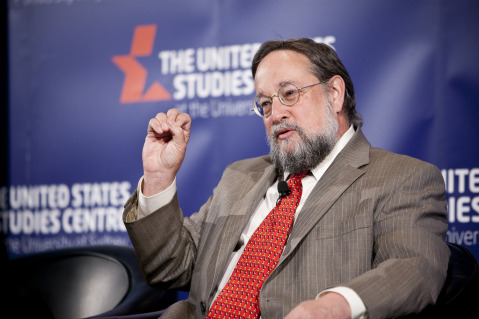by Adam Garfinkle
Once upon a time, here and there if not everywhere, Muslims, Christians, and Jews lived in towns together and, while keeping their versions of Abrahamic beliefs and traditions apart, managed still to share knowledge of and even some merrymaking amid each other’s holidays. Over many centuries—again, here and there, if not everywhere—people figured out how to weave their particularities into universal human themes at least once in a while at times of joy and celebration. Even when official toleration was much rarer than mere forbearance, many ordinary people used their common sense to get along, do business, occasionally share a snack or a drink, and acknowledge the common humanity of their neighbors. Harun al-Rashid’s Baghdad; Almoravid Córdoba; medieval Fez; even more recent Cairo, Damascus, Basra, Tunis, Beirut—here and there, if not everywhere, at least at some times if not at all times.
Alas, even as the diversity of the Middle East wanes, common sense has in more recent times fallen prey to demagogy, bitterness, and the wiles of opportunistic entrepreneurs of bigotry. This past winter in Iraq, I am told, some Sunni clergy went out of their way to warn their charges not to go near any Christmas celebration, nor greet Christian neighbors on that day as has for centuries been a custom in many places. Some Orthodox rabbis in the United States warn congregants not to let their children go trick-or-treating on Halloween, as if anything at all still remains of the religious origins of that eve. These counsels are not as heinous as some extremist Christian clergy in America urging the burning of Qur’ans, but it is all tragic, all a form of spitting upon our capacity for mutual empathy.
It also wastes lessons that we need, for every time-honored religious holy day has its universal message even as it is embedded in a particularist culture. Need a Muslim or a Jew take umbrage at the Christmas message of “peace on earth, good will toward men”? Need a Christian or a Jew be made uncomfortable by the Muslim insistence on the compassion of God at Eid al-Adha? Need a Christian or Muslim bristle at the Jewish concept of atonement during the High Holy Days? That we can even ask such questions nowadays shows how far we have fallen away from the carefully constructed, benign subtleties of earlier times—here and there, if not everywhere.
***
The Jewish High Holy Days are rapidly approaching. As most educated Christians and Jews know, these Ten Days of Repentance begin with the New Year (Rosh Hashanah) and close with the Day of Atonement (Yom Kippur). Some educated Christians and Muslims also know that the Jewish autumn holidays, which include Tabernacles (Succot), focus on themes common to all mankind—proper moral conduct, the irreplaceable need for ritual vehicles for atonement and repentance, the nurturing of gratitude and humility—while the Jewish holidays of springtime (Passover and the Feast of Weeks) focus more on the particular history and religious obligations of the Jewish people. But what few ordinary Jews (especially in secular America) these days know about, and even fewer Muslims and Christians are aware of, is the day established by the sages for the third of the month of Tishrei, the very day after the second day of the New Year: The Fast of Gedalia.
Gedalia, son of Ahikam, became governor of Judea after the Babylonian invasion in 586 BCE. His father and grandfather had supported King Josiah and his reforms, and had counseled a conciliatory attitude toward the Babylonian imperial behemoth then bearing down on Judea. Some say that Gedalia also served as a representative of the exiled Judean King, Jehoyakhin, and perhaps hoped to negotiate a modus vivendi between the King’s court and the Babylonian authorities that would allow for Jewish autonomy under Babylonian suzerainty. Gedalia was joined at Mitzpeh by some remaining Judean nobles and some military officers who had not been killed or imprisoned by the Babylonians.
Alas, not long into his governorship, Gedalia and most of his associates were assassinated by a fellow Jew named Ishmael ben Netaniah and his followers. Ishmael ben Netaniah was in league with Baalis, King of the Ammonites. Together they hoped (against any reasonable hope) to overthrow Babylonian rule.
The assassination brought down the full weight of Babylonian wrath on Judea, destroying any hope of accommodation or conciliation with the vastly stronger power. The date of Gedalia’s murder was marked as a fast day even in biblical times; the “fast of the seventh month” is noted twice in the book of Zachariya. Once the rabbis established the liturgical calendar in the 2nd century of the Common Era, the day became know as the Fast of Gedalia.
What is the meaning of the Fast of Gedalia? It is simply that fanaticism by dint of political or military means, undertaken by self-appointed leaders, is liable to end in avoidable disaster for ordinary people. The same spirit of realism aimed against such fanaticism was evident, too, in the counsel of the Prophet Isaiah against the hotheaded political leaders of his day. The Fast of Gedalia reminds us that piety needs to be cordoned off from politics, and sets a constraint against political fanaticism. It reminds us that self-appointed “heroes” must never discount the interests of their vulnerable brothers and sisters, and certainly not to engage in behavior that risks their lives and safety. It reminds us that whatever such self-appointed leaders claim, the real threats to our communities often enough come from within. And above all it counsels faith and patience: God will redeem us, in His own way, and in His own time.
Are these lessons and warnings just for Jews? Do they apply only to centuries long past? Muslims, Christians, and Jews still have plenty worth learning from each other’s traditions. The meaning of the Fast of Gedalia is but one small case in point.
Adam Garfinkle is Editor of The American Interest.













